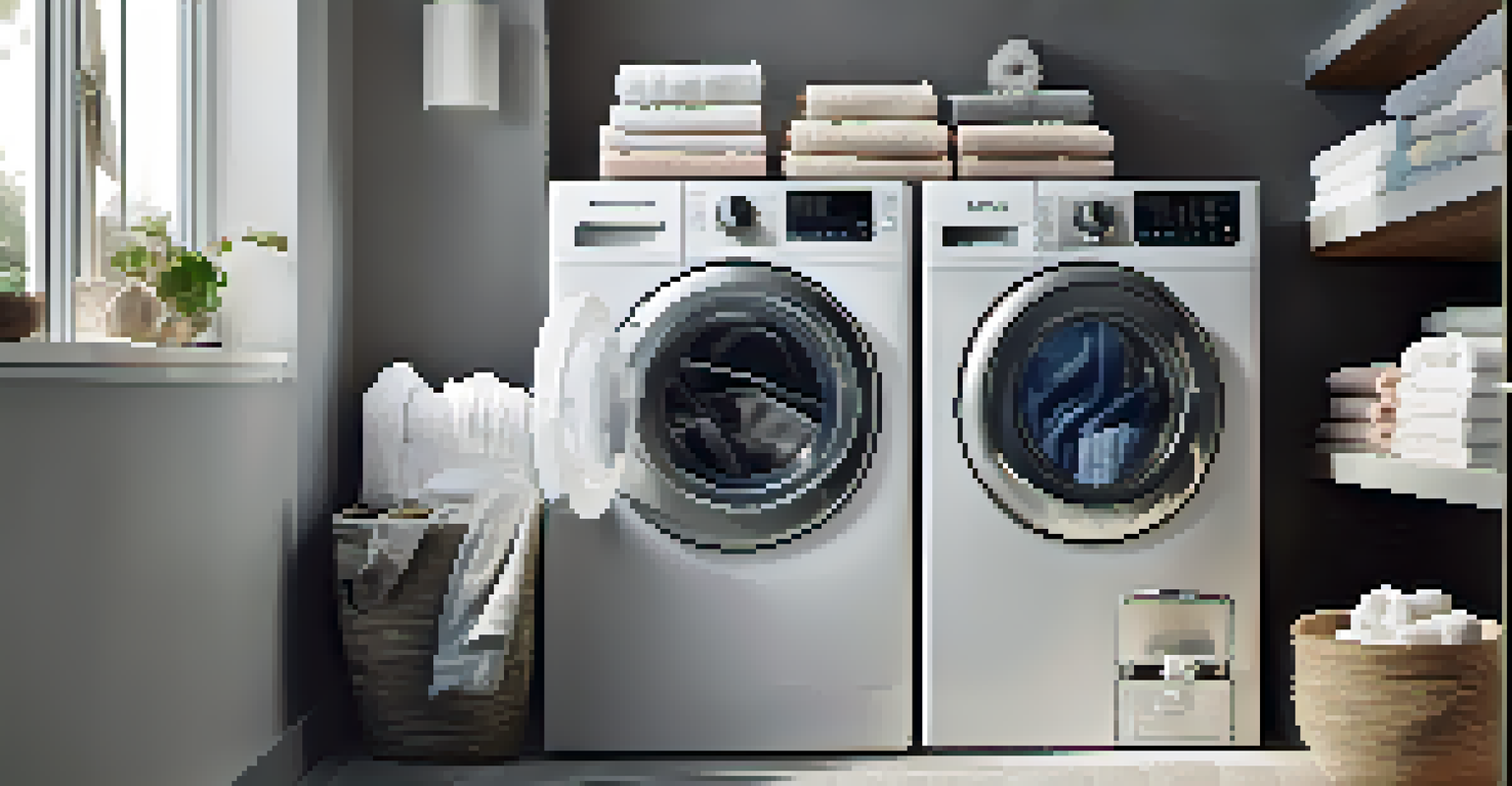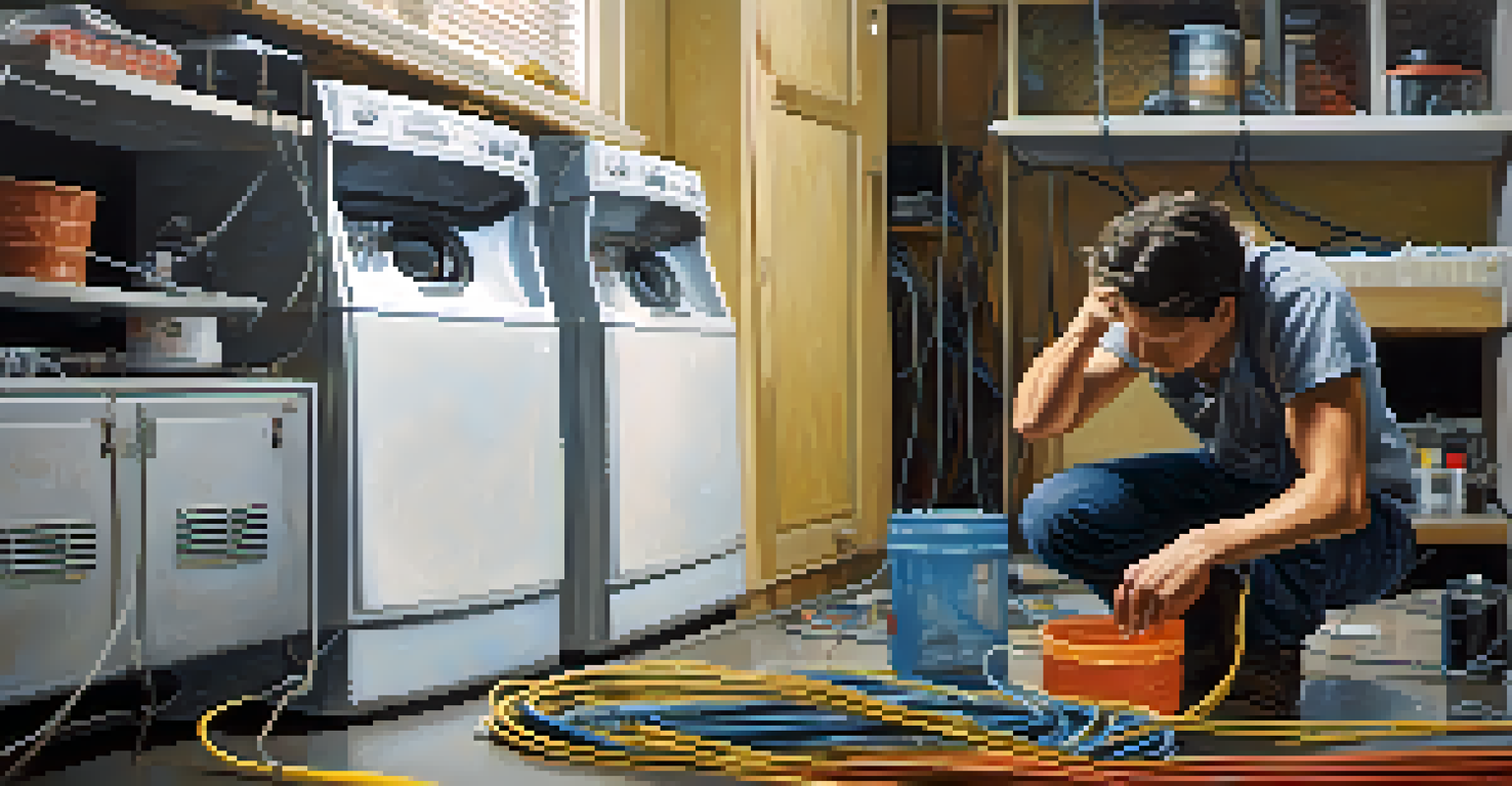How to Prepare Your Home's Appliances for Inspection

Understanding the Importance of Appliance Inspections
Appliance inspections are essential for ensuring safety and efficiency in your home. They help identify potential issues before they become serious problems, saving you time and money. Just like a regular medical check-up, these inspections can give you peace of mind about the condition of your appliances.
An ounce of prevention is worth a pound of cure.
Moreover, having your appliances in good working order can lead to longer lifespans and lower energy bills. An inefficient appliance not only works harder but also uses more energy, contributing to higher costs. By preparing for an inspection, you're proactively maintaining your home's value and comfort.
Finally, being prepared can make the inspection process smoother for both you and the inspector. A well-maintained appliance is easier to assess, leading to quicker evaluations and less stress for everyone involved. So, let’s dive into how you can get your appliances ready!
Cleaning Your Appliances Before the Inspection
A clean appliance is a happy appliance! Start by giving your appliances a thorough cleaning. Whether it’s wiping down the exterior or scrubbing the interior, removing dirt and grime can make a big difference during an inspection.

For example, a dirty oven can obscure issues that need attention, such as wear and tear or faulty parts. Plus, when your appliances are clean, the inspector can focus on their functionality rather than being distracted by clutter. This simple step can lead to a more favorable inspection report.
Importance of Appliance Inspections
Regular inspections help identify issues early, ensuring safety and efficiency in your home.
Don’t forget about the often-overlooked areas, like behind and beneath the appliances. Dust buildup can lead to overheating and other problems. By ensuring everything is spotless, you’ll not only impress the inspector but also contribute to the longevity of your appliances.
Checking Electrical Connections and Cords
Before the inspection, take a moment to inspect the electrical connections and cords of your appliances. Look for any frayed wires, loose connections, or signs of wear. Addressing these small issues can prevent bigger electrical hazards down the line.
The best way to predict the future is to create it.
For instance, a damaged power cord can pose a fire risk or lead to malfunctioning appliances. By ensuring that all electrical components are in good condition, you can help avoid any red flags during the inspection. Plus, it shows that you take appliance maintenance seriously.
If you find any issues, consider calling a professional electrician. They can provide a thorough assessment and make necessary repairs to ensure everything is safe and operational. This proactive approach can save you from potential headaches later on.
Testing Your Appliances for Functionality
It's important to test each appliance to ensure it's functioning properly before the inspection. Run your dishwasher, oven, and washing machine to confirm that they operate without any unusual noises or issues. This can help you spot problems that might need immediate attention.
For instance, if your refrigerator isn’t cooling properly, it’s better to address it now rather than letting the inspector discover it later. A malfunctioning appliance can lead to a negative inspection outcome, which can affect your home’s overall value.
Prepare Appliances for Inspection
Cleaning and checking appliances beforehand enhances their performance and facilitates a smoother inspection.
Document any issues you find and consider scheduling repairs ahead of the inspection. This will not only enhance your appliances' performance but also demonstrate to the inspector that you've been diligent in keeping your home’s systems in check.
Making Sure Your Appliances Are Accessible
Accessibility is key during an appliance inspection. Ensure that all appliances are easily reachable for the inspector. This means moving any furniture or items that may obstruct access to the appliances, such as the refrigerator, washer, or dryer.
Think of it like clearing the runway for a plane to land; the clearer the path, the smoother the process! An inspector will need to check connections and functionality, so a clutter-free space will facilitate this.
Additionally, consider keeping manuals and warranty information handy. This can provide useful context for the inspector about your appliances' history and maintenance records. It shows that you are organized and proactive in managing your home's appliances.
Reviewing Appliance Maintenance Records
Having detailed maintenance records for your appliances can be a game-changer during an inspection. These records provide insight into how well you’ve cared for your appliances over time, showcasing any repairs or routine servicing done.
For example, if you've regularly serviced your HVAC system or cleaned your dryer vents, it reflects your commitment to maintaining a safe and efficient home. The inspector can consider this when assessing the overall condition of your appliances.
Maintain Detailed Appliance Records
Keeping maintenance records showcases your commitment to care, which can positively influence inspection outcomes.
If you haven’t kept records, now is a great time to start! Document any repairs, cleanings, or inspections as they occur. This will not only help future inspections but can also be beneficial if you ever decide to sell your home.
Understanding Common Inspection Findings
Familiarize yourself with common issues that inspectors often find during appliance evaluations. These might include things like worn-out seals on refrigerators or improper venting for dryers. Knowing what to look for can help you address these issues beforehand.
For instance, if you know that your dishwasher has a leak, it’s better to fix it now rather than risk the inspector discovering it. Being proactive can lead to a smoother inspection process and potentially save you from costly repairs later.

Additionally, if you’re unsure about any aspect of your appliances, don’t hesitate to ask a professional for guidance. They can provide valuable insights and help you prepare effectively, ensuring you’re ready for any surprises during the inspection.
Final Touches: Preparing for the Day of Inspection
As the inspection day approaches, take some time to do a final walkthrough of your home. Ensure that all appliances are clean, accessible, and functioning properly. This last-minute check can catch any small issues you might have overlooked.
Also, think about how you want to present your home. A tidy, organized space can create a favorable impression not just of your appliances but of your home overall. This can set a positive tone for the inspection.
Lastly, prepare to be present during the inspection if possible. This allows you to address any questions the inspector might have on the spot. A little preparation can go a long way in ensuring a smooth and successful appliance inspection!